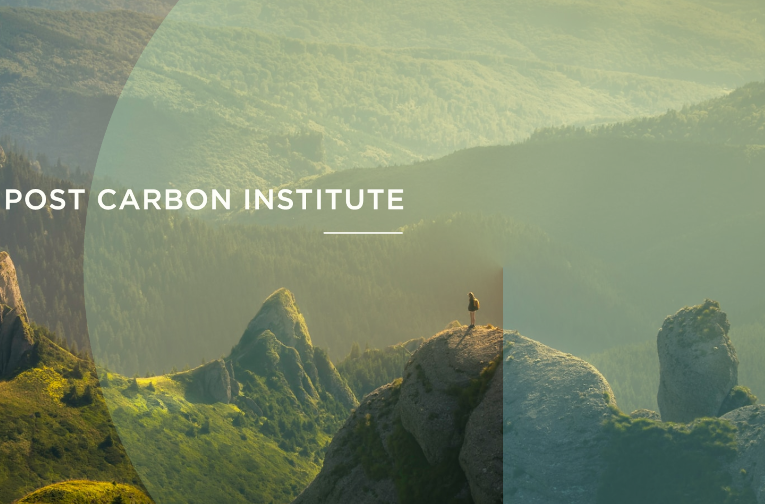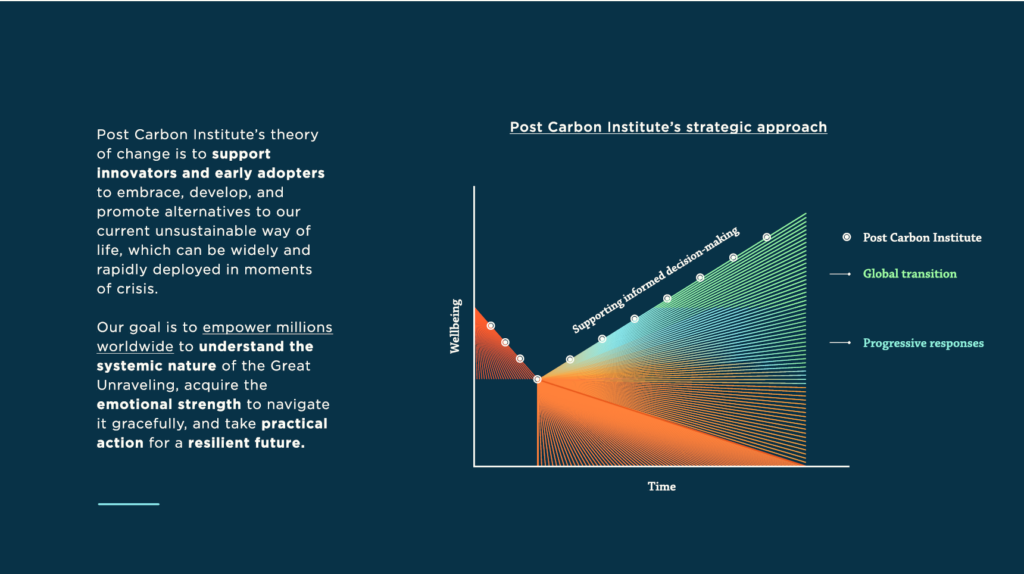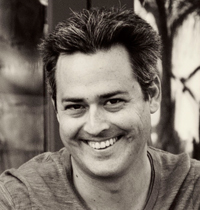Like so many people and organizations, we at Post Carbon Institute have been reflecting and recalibrating since November 5th. Wherever you fall on the political spectrum, Trump’s victory, along with his campaign pledges and cabinet nominations, should be an indication that the status quo is in the rearview mirror if not actually crumpled and smoking on the side of the road.
Yet, as dedicated followers of PCI and readers of resilience.org well know, the status quo of continued growth, consumption, globalization, and exploitation has been steering us slowly but surely to the edge of collapse. A second Trump presidency could either fast-track this process or veer us onto a different course.
There are truly frightening, cruel, and disastrous possibilities to consider, including policies that must be resisted. But as I recently discussed with my colleagues Jason Bradford and Rob Dietz (and as PCI’s Theory of Change illustrates), cracks in the status quo also create space for positive alternatives to emerge.
Each of us has agency to reinforce one of these pathways — status quo, regressive, or pro-social/pro-nature — in our own lives and communities. But perhaps as important as the question of what we do to respond to this political moment and the larger Great Unraveling is the question of how we comport ourselves.
The team at Post Carbon Institute is redoubling our efforts going into 2025 and beyond, with plans to further expand our offerings at resilience.org. But we’re also committed to ensuring that our how will be guided by values of authenticity, truth-telling, humility, generosity, reciprocity, respect, and relationality. That means exploring challenging topics, supporting meaningful connections and interactions with and between our community of readers and allies, and always being honest with ourselves and you — even about the things we don’t know.
It also means making access to our content and live events free to any and all, for as long as Post Carbon Institute is able. Our hope and trust is that those who value these offerings, and who have the means—large or small—to do so, will contribute what they can in kind, by sharing our work with others… by courageously engaging in the hard work of building community and collective resilience… by embodying the values of care, integrity, and openness. And, yes, by supporting our work financially — while money still matters.
Thanks for taking the time to read this letter and for being part of our growing community.
Best,
Asher Miller







